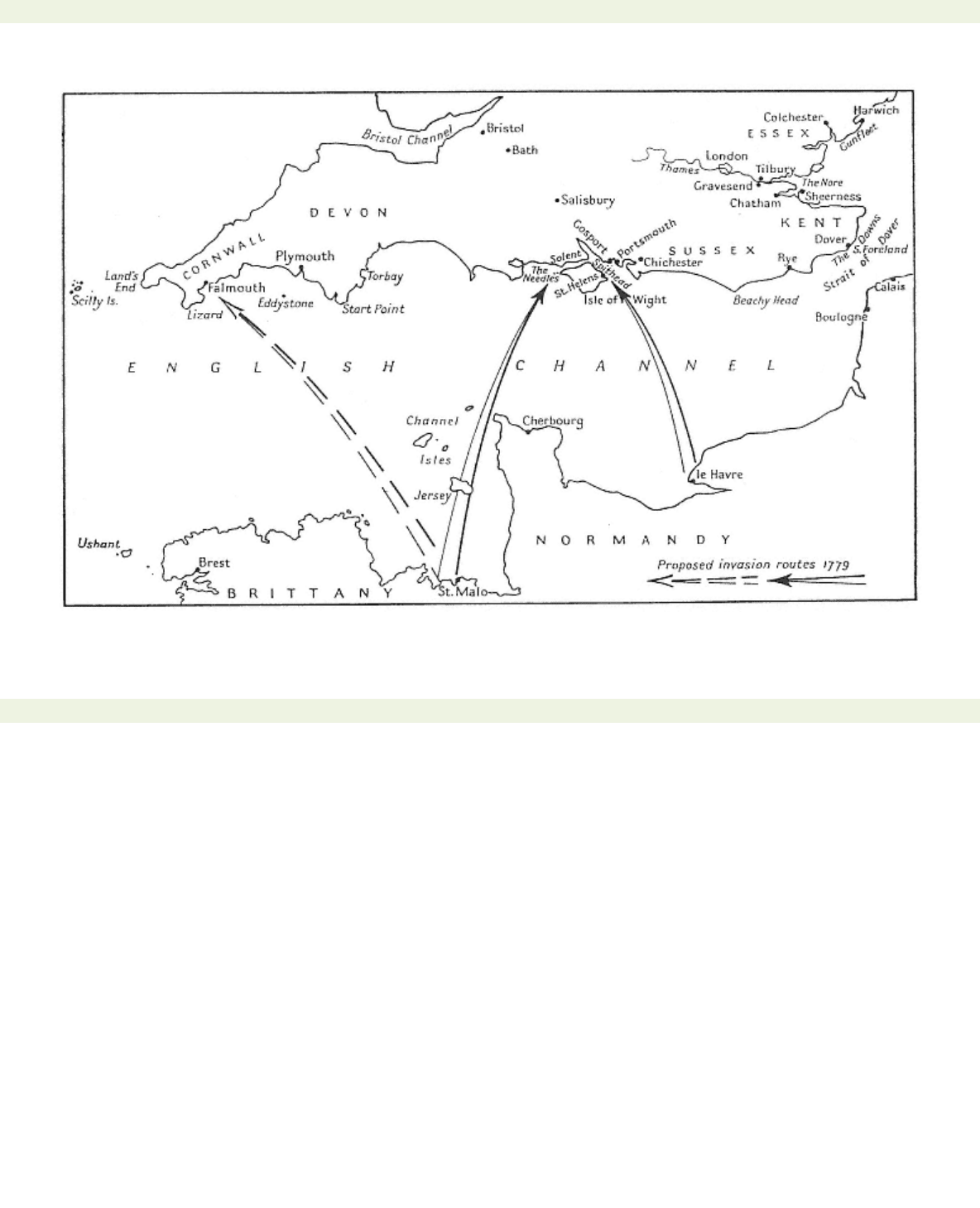Mackesy P. The War for America, 1775-1783
Подождите немного. Документ загружается.


page_204
file:///C:/Users/User/AppData/Local/Temp/Rar$EX01.335/The%20War%20for%20America%20%201775-1783/files/page_204.html[1/17/2011 2:26:19 PM]
< previous page page_204 next page >
Page 204
'much anxiety'. 'The good opinion the country in general expressed towards me, gives them expectations, I fear,
much beyond my poor abilities to perform.' Yet war was still four months off, and under Sandwich's eye the fleet
was rapidly being brought forward from ordinary. As Keppel was making his first conditions and complaints,
additional workmen were being taken on in the yards, extra time was being worked, and all hands were turned to
fitting ships for sea. The ships on the stocks were ordered to be hastened on, as they had been in the previous war,
without waiting for their timbers to season. From the dockyards of southern England ships were dropping down
towards the fleet anchorage. Army recruits held back from America were lent to man them till the Marines returned
from Nova Scotia. The line of battle, Captain Jervis wrote on 15 April, was 'the most formidable, for its numbers, I
ever saw'.1
Keppel's first sailing orders were to put to sea with twenty-nine sail of the line and escort a convoy past Ushant
with reinforcements for Gibraltar. But they were suspended on the news that the Toulon fleet was at sea, and his
fleet was gutted to make up Byron's squadron. Eleven of his ships were taken, and the tacks and sheets in two
others were unrove and made over to Byron. As a result of this set-back, when Keppel sailed in June he had only
twenty sail of the line; but other ships joined him steadily as they completed their crews. When fighting began in
the middle of July he had thirty, and by the end of September thirty-three, while twenty-five others had gone
abroad since the spring. It was no mean achievement on the part of Sandwich; and Keppel's fleet was amply
sufficient to hold the Channel against the French.
Keppel's fear of invasion was one which always afflicted seamen more than soldiers or statesmen. But in this case
perhaps it also reflected the wishful thinking of the opposition. Their desire to bring home the army in America was
voiced in Parliament on 1 April on a motion by the Duke of Richmond2;
1 Keppel, II, 19; CO 5/254, f. 108; Sandwich, I, 363; II, 93; Amer. Neptune, 1947, p. 95.
2Distribution of the British army, November 1778
Cavalry Regiments Infantry Battalions
England
16 23
Scotland
1 3
Ireland
11 11
America
2 45
Mediterranean
7
West Indies
6
East Indies
1
Africa
1
TOTAL
30 97
(WO 34/111, f. 32).
(Continued opposite)
< previous page page_204 next page >

page_205
file:///C:/Users/User/AppData/Local/Temp/Rar$EX01.335/The%20War%20for%20America%20%201775-1783/files/page_205.html[1/17/2011 2:26:19 PM]
< previous page page_205 next page >
Page 205
and Rockingham was at Portsmouth to prime Keppel. 'God send the fleet and army safe home from America',
Keppel wrote to Sandwich on May 30th. 'I have long wished to see it, every hour of its absence now is critical. I
must here finish upon this or I shall be led to my political ideas upon this subject, which I do not mean and will
therefore confine myself to my profession, where the King called me to act in.'1
But in his profession he was equally beset by fears. From the first he seems to have swallowed the opposition line
that the Ministry intended to use him as he had allowed Newcastle to use Byng. Lord Weymouth had remarked
that he seemed more inclined to do his duty at sea than to give advice; and he was pressing that his instructions
should be explicit on every point. Should he give battle with twenty or thirty sail of the line, he asked in April, if
d'Estaing joined the Brest fleet and brought the enemy's strength to nearly forty? Sandwich replied that if the
enemy's superiority was not very marked, he should fight; but if the Brest and Toulon fleets united, he should
return to collect the reinforcements which would assemble at St Helen's as they were manned. It was a fair and
obvious answer. But early in May, with his best ships gone to Byron and few of the remainder collected, Keppel
was asking what to do if the French came up the Channel; and a couple of weeks later he asked for a Cabinet
ruling on whether to risk a battle. 'I am not the person that will offer an opinion upon a matter of such
(footnote continued from previous page)
Forces in England, June 1778
Encamped:
9 regiments of cavalry 2,919
11 battalions of infantry 7,810
39 corps of militia 19,503
30,232
To guard coasts:
2 regiments of cavalry 570
Cantonments:
1 regiment of dragoons (Scotland) 285
2 battalions and 5 companies (England) 2,086
28 corps of militia 10,516
13,457
Serving in the fleet:
1 battalion of infantry 710
TOTAL: 44,399
(Thynne
Papers)
1 Sandwich, II, 83.
< previous page page_205 next page >

page_206
file:///C:/Users/User/AppData/Local/Temp/Rar$EX01.335/The%20War%20for%20America%20%201775-1783/files/page_206.html[1/17/2011 2:26:20 PM]
< previous page page_206 next page >
Page 206
THE ENGLISH CHANNEL
< previous page page_206 next page >

page_207
file:///C:/Users/User/AppData/Local/Temp/Rar$EX01.335/The%20War%20for%20America%20%201775-1783/files/page_207.html[1/17/2011 2:26:20 PM]
< previous page page_207 next page >
Page 207
nice importance. I hope I shall do my duty becoming an officer in every situation; and I might perhaps not be
sorry, if I considered myself only, to give battle to the French fleet when I might not dare as a councillor to my
King to advise it.'1
5
The Campaign in the Channel
On 13 June, a few days after Byron's departure, the Channel fleet of twenty ships of the line weighed anchor for its
first cruise, with orders to see the Gibraltar reinforcement safe past Brest. Keppel's orders were to seize any French
frigates which tried to shadow him, and give battle if the Brest fleet came out. Before he sailed he expressed his
satisfaction with these very explicit instructions.2
The fleet worked its way down the Channel, and west of the Lizard two French frigates were sighted. If they had
followed the usual custom and come alongside the Admiral, he could have done nothing but get their promise not
to follow the fleet, and wish them bon voyage; and a monotonous proceeding it would have been, for eleven
French frigates were reported in the chops of the Channel, and the performance would have been repeated every
day. But, instead, one of the Frenchmen answered the Admiral's summons by pouring a broadside into a sixty-four,
and after a two-hour fight was forced to strike. The first shots had been fired.
In the captured frigate was a list of the Brest fleet. It showed twenty-seven sail of the line ready for sea, and five
more preparing. Keppel turned home for reinforcements, and on the 27th he anchored off the Isle of Wight. After
the campaign he was to plead that he came in because he dared not risk a battle knowing that there were no naval
stores to repair his damage. But he did not say so at the time, and hitherto his complaints had been about manning
and not stores.
There was general dismay at the fleet's return. Keppel's withdrawal might expose the Gibraltar convoy to capture,
and the homeward-bound East Indiamen and large West India convoys due in the Channel were at the mercy of
any raiding force the French might send out. The King was 'much hurt' at his reappearance, and hoped the Cabinet
would order him back to his cruising station at once. Germain, too, remembered with impatience how Hawke had
kept the seas. 'I long to hear of Mr Keppel's return to Brest', he told Knox, 'and if ever I am concerned in drawing
instructions for Naval operations I will strike St Helen's out of my Dictionary.' Keppel's return when the French
were still in harbour showed an unnecessary haste.
1Ibid., II, 17 ff., 24ff., 54, 69, 77, 79.
2 Sandwich, II, 88, 93 n.
< previous page page_207 next page >

page_208
file:///C:/Users/User/AppData/Local/Temp/Rar$EX01.335/The%20War%20for%20America%20%201775-1783/files/page_208.html[1/17/2011 2:26:21 PM]
< previous page page_208 next page >
Page 208
He had said that five of the Brest ships had already sailed, which reduced their force in harbour to twenty-two, and
he now had as many himself. But he took refuge in his orders. 'To have fought with such inferiority, and to have
been totally routed, would have merited censure; it would have been justly said that I had proper orders to return to
St Helen's, and that an additional force was collecting in case of such an event.'1
The Admiralty did what it could to hasten Keppel to sea. He was ordered to return off Brest as soon as four more
ships were ready, a number later reduced to three. Sandwich went down to Portsmouth again, but Keppel treated
his suggestions for getting men with obstructive contempt, and declared that he must be equal to the French, 'ship
for ship in the line', before he would sail. He complained that his return to port had not received approval.
Sandwich's irritation shows through one of his replies, but generally he answered with patience and good temper.
Palliser, who was doing all he could to smooth the way, assured the First Lord that Keppel was perfectly satisfied
with his treatment, and that his disposition was 'of the fairest and most honourable kind'. But the tone of Keppel's
own letters to Sandwich does not support this. An anonymous letter to Sandwich hit near the mark: 'If His Majesty
will employ Opposition admirals of great political connexions and family, he will undo his ministry, the nation, and
himself.'2
The shortage of men was increased by sickness in the ships which had cruised in the winter. But the Leeward
Island convoy passed safely up the Channel, bringing a welcome supply of seamen for the press. On 9 July Keppel
sailed again with twenty-four of the line for the rendezvous off the Lizard, to await the Jamaica convoy and collect
his reinforcements as they came out to him. Five more ships followed him within a couple of days.
The safety of the convoys was not the only reason for wishing to keep the fleet at sea. There was intelligence from
Paris that Spain would enter the war when Congress ratified the French treaties; and if this was true the French
must be fought and beaten before the Spaniards could join them. There was thus a conflict between the need for
time to complete the British mobilisation and the need for a rapid decision. Even Lord North hoped the French
would try their strength with Keppel quickly. So did the King, who never doubted the outcome of a battle.3
But such firmness of spirit in the Prime Minister was becoming rarer. At the beginning of June the King was so
exasperated by North's vacillation and talk of retirement that he wrote him a lecture on his duty, and hoped
1 Sandwich, II, 98, 100; Knox, 144.
2 Adm. 2/1335, 26 June and 3 July, Admiralty to Keppel; Sandwich, II, 10110.
3 Sandwich, II, 11517; G 2391.
< previous page page_208 next page >

page_209
file:///C:/Users/User/AppData/Local/Temp/Rar$EX01.335/The%20War%20for%20America%20%201775-1783/files/page_209.html[1/17/2011 2:26:21 PM]
< previous page page_209 next page >
Page 209
that 'the summer's repose will enable you to rouse your mind with vigour to take the lead again in the House of
Commons, and not let every absurd idea be adopted as has too often recently appeared'. About this time the King
began his confidential relationship with North's friend and Under-Secretary John Robinson, whom he enlisted for
the work of keeping North at the treadmill. Robinson assured him that North had made a resolution to concentrate
his mind on public affairs and to start a vigorous drive on the backlog of work.1
On 17 July a dilemma faced the Ministry which measured North's painful indecision. A fugitive arrived with news
that a declaration of war had been read on the quay at Dunkirk, and an intercepted letter reported that orders had
been given for the destruction of British shipping. A formal declaration in reply would require a Cabinet meeting,
and the Ministers had scattered to their summer retreats. Should orders be given to attack French shipping without
a declaration? To the King the issue was clear: the French had cast off the mask, and open warfare should begin.
Lord Weymouth, the responsible Secretary of State, agreed. So did North, who went off to dine with Sandwich and
talk about encouraging privateers.
But by the morning North had developed scruples. He now insisted that on the question of reprisals the Cabinet's
views must be sought. But he was not sure how to discover them: the only suggestion he could make was that he
should write off to those members of the Cabinet who were in reach, and either ask their opinion or arrange a
Cabinet meeting. This was too much. 'You have already this morning settled with Lord Sandwich', wrote his
irritated sovereign. ' . . . There can be no reason to delay issuing the orders till a Cabinet is summoned; what is so
clear ought never to be delayed for that formality.' This decided the matter, and on the following day Keppel was
ordered to attack French shipping.2
The clash was now approaching. The militia spent those late July days in camp, grumbling at their confinement and
wondering if the French fleet was at sea. An invasion alert went out from Amherst's headquarters to the district
commanders, and secret plans were made to drive and burn the countryside in front of the enemy. Amherst's
dispositions followed Ligonier's classic pattern. The seaports were garrisoned, and the coast patrolled by a forward
screen of dragoons. But the main counter-attack forces were held together in reserve, in camps astride the Thames
in Essex and in Kent (where Keppel's brother commanded), to cover the capital against a landing in any quarter.
The two groups were linked by causeways across the Thames
1 G 2369; Add. MSS. 37883, ff. 2258.
2 SP 78/306, 17 July; G 2393, 3108 (wrongly dated 1780); Sandwich, II, 1236, 373; Dartmouth, II, 467.
14
< previous page page_209 next page >

page_210
file:///C:/Users/User/AppData/Local/Temp/Rar$EX01.335/The%20War%20for%20America%20%201775-1783/files/page_210.html[1/17/2011 2:26:22 PM]
< previous page page_210 next page >
Page 210
between Tilbury and Gravesend, protected on the seaward side by obstructions, so that either force could cross the
river rapidly in three columns if the enemy landed.1
Meanwhile the fleets of France and England converged. Admiral d'Orvilliers had put out from Brest on 10 July
with thirty sail of the line and two of fifty guns; but three of them were of weak scantling and unfit for the line of
battle, so that his real strength in the line was twenty-nine including a fifty. His orders were to cruise for a month,
but not to seek out and attack the British fleet. On the afternoon of 23 July, sixty-six miles west of Ushant, he
sighted Keppel. During the night he worked to windward, and manoeuvred with the weather gage for three days
without closing for action. But on the 27th the wind changed and enabled Keppel to pounce on the French rear.
D'Orvilliers turned to meet him.
Two of the French ships had parted company in the night, and d'Orvilliers had only twenty-seven ships in his line
of battle against Keppel's thirty, and 1,950 guns against 2,280.2 He did not want a close action, and the fleets
passed each other firing on opposite courses. Keppel was unable to collect his damaged ships and renew the action
in daylight; and during the night the French crept off, covered by deceptive lights. The French had suffered greater
casualties, 736 against 408; but their guns, firing langrage high into the British rigging, had so shattered the British
masts and sails that Keppel was virtually immobilised. Both sides claimed a victory which neither had won, though
Keppel was left in possession of the watery battlefield. The action proved that the enemy lacked the strength and
the will to win the command of the Channel and invade England that summer. The Ministry had produced a fleet
which could hold the French in check.
Keppel took his battered ships into Plymouth, where a survey showed the damage to be severe. The dockyard
toiled to restore the fleet to service; but the shortage of great masts forced Keppel to patch his damaged ones and
make do. Sandwich offered to come down in person, and was soundly snubbed 'If you are so obliging as to
delegate a little authority to us here, I think your Lordship's coming will only give you unnecessary trouble.' He
stamped on Sandwich's suggestion that his foulest ships should be docked and cleaned, and the crews sent to man
the new ships waiting at Portsmouth; and Sandwich acquiesced, though convinced that it would have increased the
fleet more rapidly. Keppel wrote that he was fretting himself into illness; and after many complaints of bad health
he withdrew to Mount Edgecumbe for a few days' rest. From there he wrote that he was such an invalid that rest
1 Ducane MSS. 23940; WO 34/226, p. 325 and passim; WO 34/227, pp. 3, 58.
2 Lists in James, 4323, and Chevalier, 87, with slight discrepancies. D'Orvilliers had another 174 guns in his
three ships which were not fit for the line.
< previous page page_210 next page >

page_211
file:///C:/Users/User/AppData/Local/Temp/Rar$EX01.335/The%20War%20for%20America%20%201775-1783/files/page_211.html[1/17/2011 2:26:22 PM]
< previous page page_211 next page >
Page 211
would be essential when the winter came on; and once again he lamented the American War as a fatal drain on our
seamen.1
On 23 August the fleet put to sea again, to seek the French in the mouth of the Channel. The King hoped for
another battle: 'Some decisive blow is necessary to rouse the nation from a lethargy which may prove fatal, if
unanimity and vigour is shown Britain is capable to cope with her enemies.'2 But d'Orvilliers was cruising in the
Bay of Biscay, and Keppel's few frigates failed to find him. Convoys came safely in from Jamaica, the Baltic and
the Mediterranean; but Keppel's health had not recovered, and after several weeks at sea without finding the enemy
his spirits were falling. The lack of intelligence he found 'very trying to an anxious mind' a phrase often echoed in
the letters of Nelson and Collingwood a generation later, for Keppel was a victim of the uncertainty which always
preyed on admirals searching the empty waters. Sickness was increasing in his ships, and provisions were running
low, but he stayed at sea, himself a prey to crippling spasms. October came in with dirty blowing weather and large
seas. The patched masts were showing the strain, 1,000 seamen were sick, and Keppel was anxious to bring his
fleet right up to Spithead for the winter refit. To this the Cabinet agreed, and at the end of the month the fleet
worked in to Spithead.3
The campaign had not been unsatisfactory, for decisive blows were seldom struck in the first year of war. The
navy's mobilisation had been accomplished without misfortune, and no convoys had been lost. Only men and masts
still cast their shadow. At the beginning of October eight more ships of the line were ready for sea, but for want of
2,500 seamen lay captive in their harbours.4
1 Sandwich, II, 136, 139, 147, 150.
2 Add. MSS. 37834, f.5.
3 Sandwich, II, 154, 159, 173ff.; G 2414, 2418.
4 Sandwich, II, 177.
< previous page page_211 next page >

page_212
file:///C:/Users/User/AppData/Local/Temp/Rar$EX01.335/The%20War%20for%20America%20%201775-1783/files/page_212.html[1/17/2011 2:26:23 PM]
< previous page page_212 next page >
Page 212
Chapter XI
Crisis in America
1
Sir Henry Clinton
Much more caution is necessary in conducting this than any former war', wrote Palliser after the Battle of Ushant.
North and his colleagues were men walking a tightrope with a heavy burden, the American rebellion. They could
not have turned back if they had wanted to; for the country's shipping resources were unequal to the evacuation of
the army in America, and the operation would have had to be spread dangerously over two years. They were forced
to move on with resources so slender that a single mistake might bring them tumbling to disaster. They had kept
the command of the Channel in dispute, but had no surplus of vessels to protect the coastal shipping against Paul
Jones and his fellow raiders, or to form the flying squadron at Kinsale which was needed to protect the convoys in
the Western Approaches. Nor could a squadron be spared to hold the Mediterranean against the enemy ships which
remained in Toulon.
The precarious balance must have been constantly in their minds that summer as they waited for news from
America. Byron's arrival might save the situation there; but if he had gone astray the plight of Clinton's great army
would be alarming indeed. For their peace of mind it was lucky that the Ministers' eyes could not follow Foul-
weather Jack into the Atlantic. For only three days out his squadron was scattered by a violent gale, and bad
weather pursued it across the ocean. The first ship did not reach New York till 30 July, nor a second till the middle
of August. Six more came in at the end of August, nearly three months after they had sailed, with crews exhausted
and rigging in disarray. Byron himself arrived at the end of September from Halifax. Others had fetched
Newfoundland in a shattered state, and one sixty-four which had been driven south as far as Portugal and been
remasted at Lisbon appeared in October. Only one ship from England reached Lord Howe before the crisis was
weathered.1
General Howe and the main force in America had spent the winter comfortably in Philadelphia, while Washington
watched him in discomfort twenty-six miles away at Valley Forge. The Americans suffered in their hutments
through the harsh winter. Supplies of every kind were short, many deserted, and Washington's strength once more
ebbed away. But his lines
1 Compare James, 10811; Sandwich, II, 286; Albion, 2978.
< previous page page_212 next page >

page_213
file:///C:/Users/User/AppData/Local/Temp/Rar$EX01.335/The%20War%20for%20America%20%201775-1783/files/page_213.html[1/17/2011 2:26:23 PM]
< previous page page_213 next page >
Page 213
were reported to be strong; and Howe, who had declined to attack his entrenchments at Whitemarsh in December,
saw no point in exposing his force to a winter offensive in which an initial success could not be exploited. April
arrived, and still Howe stayed in his winter quarters, believing that Washington had strengthened his camp and
waiting for green forage to grow before he would take the field. The order of 8 March to detach a force against the
New England harbours arrived and was dismissed as impracticable he could spare only two thousand men, the
operation would need twice as many, and the coastline was difficult to navigate. Even in Pennsylvania he saw no
hope of ending the rebellion with his present force.1
In any event Sir William had no intention of staying in America to try it. On 8 May Sir Henry Clinton arrived from
New York to succeed him in the supreme command. He was to hold it for four years, and his name was for ever to
be linked with the downfall of the American empire. He was, wrote Major Wemyss who served under him, 'an
honourable and respectable officer of the German school; having served under Prince Ferdinand of Prussia and the
Duke of Brunswick. Vain, open to flattery; and from a great aversion to all business not military, too often misled
by aides de camp and favourites'. The vitriolic Colonel Charles Stuart had called him 'fool enough to command an
army when he is incapable of commanding a troop of horse'. But this is unfair. He was a very capable general in
the field; and Wemyss laid his finger on Clinton's real weaknesses. His interests were narrow, and he was crippled
by self-distrust. In a station where political and administrative questions crowded in on the commander, he lived
retired with a staff of whom Stuart said that the Adjutant-General Lord Rawdon was the only man of integrity.
Thus he insulated his mind from the realities of American opinion and the doings of loyalists, refugees and
commissaries. He was a difficult colleague, for he was jealous, hot tempered, and quick to take dislikes and to
notice slights. At the beginning of 1778 he had been bespattering Howe with abuse; and his command was marked
by endless quarrels with the admirals on the station.2
This touchiness was the outward sign of a deep self-distrust. On paper a bold memorialist with a powerful and
persuasive style, he was timid in action. Shortly before he relieved Howe he was protesting that the command
should not fall on his shoulders. 'Naturally of an unsteady disposition', he was easily cast down by minor reverses.
His appointment to command England's largest army was due to circumstance rather than deliberate choice. He had
gone to America in 1775 with Howe and Burgoyne, one of a trio
1 CO 5/95, ff. 86, 116; Sackville, II, 1078; Anderson, 299300.
2 Harvard, Sparks MSS., XXII, 214; Wortley, 83, 154; Carlisle, 432. Clinton spoke German and was liked by
his German troops.
< previous page page_213 next page >
